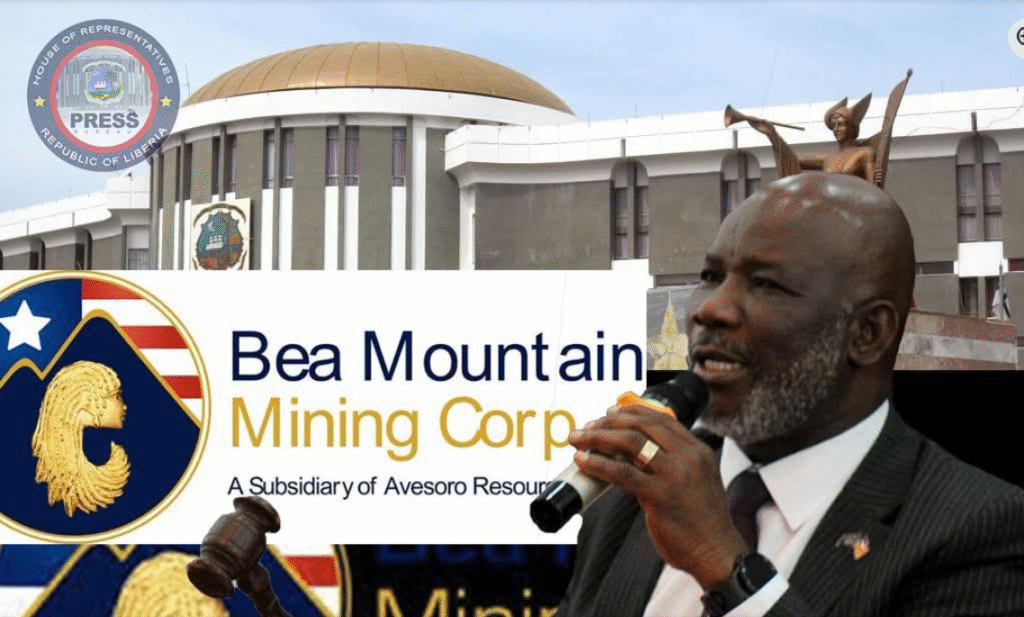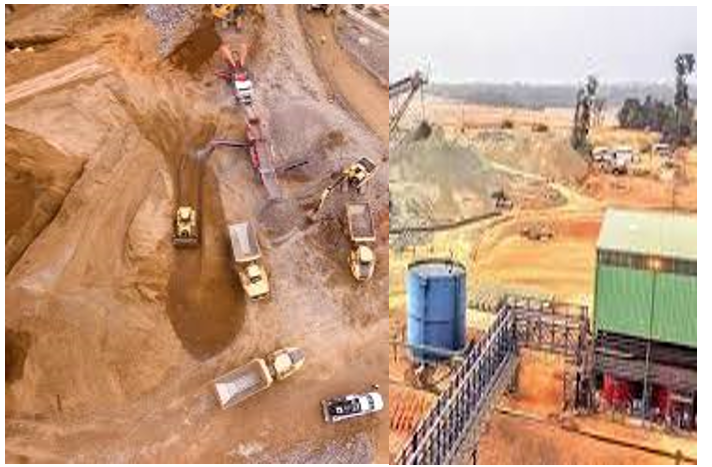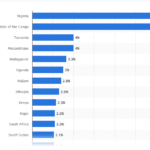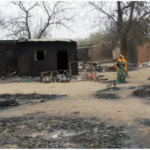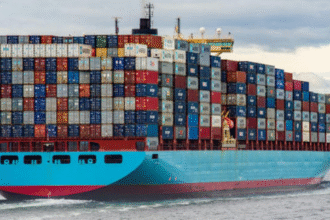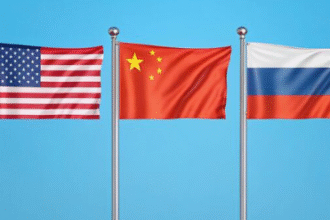By Lamin Guèye
Monrovia, Liberia – Liberia, a nation blessed with abundant natural resources, continues to grapple with a long and complex history of exploitation, primarily at the hands of multinational corporations and foreign investors. While the promise of economic development often accompanies such ventures, the reality on the ground paints a starkly different picture: land dispossession, inadequate infrastructure, and the exploitation of cheap labor are common occurrences, leaving many Liberians feeling that the benefits disproportionately accrue to foreign entities at the expense of their own society.
From iron ore and timber to rubber, gold and diamonds, Liberia’s natural wealth has attracted significant foreign investment for decades. Large international companies dominate the mining, agriculture (particularly rubber plantations), and logging sectors, often operating under concessions granted by the government. However, critics argue that these investments have consistently failed to translate into meaningful improvements for local communities. Profits are frequently repatriated, leaving minimal investment in crucial infrastructure like roads, schools, and hospitals.
“We see these companies come in, extract our resources, and leave with little to show for it,” laments Sarah Toe, a community leader from Nimba County, a region rich in iron ore. “Our land is scarred, our water is polluted, and our people are still struggling to make ends meet.”
The issue extends beyond resource extraction. Multinational companies have been accused of relying on cheap Liberian labor, leading to alarmingly low wages and substandard working conditions. This exploitation is exacerbated by weak labor rights protection and a lack of effective enforcement mechanisms, leaving workers vulnerable to unfair treatment and unsafe environments.
Perhaps the most devastating consequence of foreign investment has been land dispossession. Large-scale land concessions granted for mining, logging, and agriculture have resulted in the displacement of countless local communities and farmers. Often, these communities are inadequately compensated or even consulted during the process, leading to significant social and economic upheaval as they lose their livelihoods and access to vital resources.
Further complicating the situation are unequal power dynamics that frequently favor foreign investors. Their influence over the Liberian government can lead to contract terms that prioritize corporate interests over the well-being of the local population. This imbalance makes it incredibly difficult for communities to negotiate for fair compensation, secure environmental protections, or enforce their rights when companies violate agreements.
Corruption and a lack of accountability continue to plague the system. Companies have been known to evade taxes, skip full disclosure of extracted minierals, and skirt regulations due to weak enforcement, creating a climate of impunity where exploitative practices are allowed to flourish without fear of consequences. For example, unlike Ghana, Liberia does not know what companies like Bea Mountain exports in terms of minerals and the exact quantity or the exact profits that ArcelorMittal makes in profits from the country’s iron ore
The historical context of this exploitation adds another layer of complexity. The legacy of the Firestone rubber plantation, established in the 1920s and notorious for its exploitative labor practices, continues to cast a long shadow, contributing to a deep-seated distrust among Liberians towards foreign investors.
As Liberia seeks to rebuild its economy and ensure a more equitable distribution of its wealth, tackling the pervasive issues surrounding resource exploitation remains a critical challenge. Experts argue that strengthening governance, enforcing labor laws, promoting community consultation, and ensuring transparency in contract negotiations are essential steps toward breaking the cycle of exploitation and fostering a more sustainable and equitable future for all Liberians. The nation stands at a crossroads; whether it can learn from its past and chart a new course towards responsible resource management will determine its future prosperity and stability.
A growing chorus of voices within Liberia is demanding a comprehensive renegotiation of existing mineral concession agreements with major foreign companies, alleging widespread exploitation of the nation’s natural resources while leaving its citizens mired in poverty. Attention is particularly focused on agreements with Bea Mountain Mining Corporation, China Union, and ArcelorMittal, all operating in Liberia’s lucrative mining sector.
For years, these companies have extracted significant amounts of gold, iron ore, and other valuable resources from Liberian soil. However, critics argue that the benefits accruing to the Liberian people are disproportionately small, citing inadequate revenue sharing, limited job creation for skilled Liberians, and insufficient investment in community development.
“We are watching our wealth being shipped overseas while our schools crumble, our hospitals lack basic supplies, and our people struggle to find employment,” lamented David Tarnue, a representative for the Civil Society Mining Advocacy Group. “These companies are operating under concession agreements that were signed years ago, under different circumstances, and they no longer reflect the true value of our resources or the needs of our nation.”
Bea Mountain Mining Corporation, operating the New Liberty Gold Mine, has faced accusations of environmental degradation and inadequate compliance with labor laws. China Union, responsible for iron ore extraction in Bong County, has been criticized for slow progress on infrastructure development promised in their concession agreement. ArcelorMittal, operating the Yekepa iron ore mine, has been accused of focusing primarily on exporting raw materials rather than investing in local processing facilities.
The lack of transparency surrounding these agreements is also a major concern. Critics argue that the government has failed to adequately monitor the companies’ activities and enforce compliance with environmental and social safeguards.
“The Liberian government has a responsibility to protect the interests of its citizens,” stated U.S.-based Sarah Johnson during a recent phone interview on the issue. “We need to review these agreements with a critical eye, ensuring fair royalty rates, robust environmental protections, and a commitment to local content development. We cannot continue to allow these companies to profit at the expense of our people.”
Calls for renegotiation are gaining momentum, with pressure mounting on the government to prioritize the long-term benefits of mineral wealth for the Liberian people. Civil society organizations are advocating for greater transparency in the renegotiation process, urging the government to consult with communities affected by mining operations and to prioritize sustainable development practices.
The government has acknowledged the concerns raised and has hinted at a willingness to engage in a review of existing concession agreements. However, the process is likely to be complex and fraught with challenges, as the companies involved are expected to resist any attempts to significantly alter the terms of their agreements.
The outcome of this situation will be a critical test of Liberia’s ability to manage its natural resources effectively and ensure that its citizens benefit from the wealth beneath their feet. The future of Liberia’s development may well depend on the government’s ability to negotiate fair and equitable agreements that prioritize the needs of its people.
For instance, the renewal or extension of term favors Bea Mountain against the country:
Bea Mountain Mining Corporation can extend the term for a maximum of 25 years if there is commercial value of the remaining deposit and after notifying the government 1 year in advance from the expiry of the termination date. Within 90 days after serving notice, Bea Mountain Mining Corporation should provide the government with a feasibility report describing the type and quantity of minerals that might exist in the contract area, the proposed production plan and a detailed description of the proposed mining and processing methods, tire design, cost and construction schedules for the proposed facilities and equipment, the financing arrangements contemplated, and the best of when the minerals will cease to exit.
Questions remain whether the new Liberian legislature led by newly elected Speaker Richard Nagbe Koon will delve into these concession issues and address the poverty crisis and under-development across the country with a focus on road, energy, education and improved healthcare.
